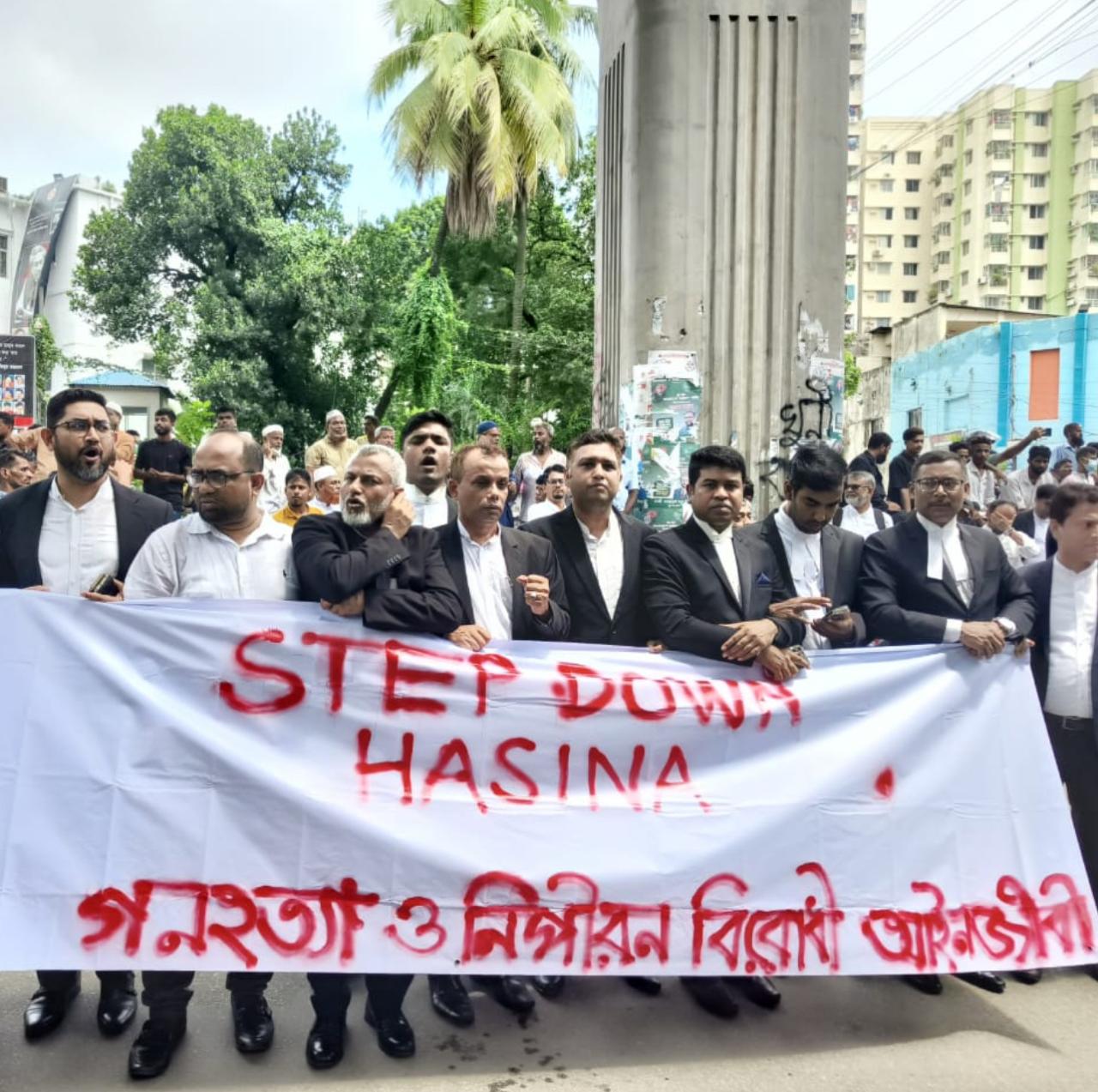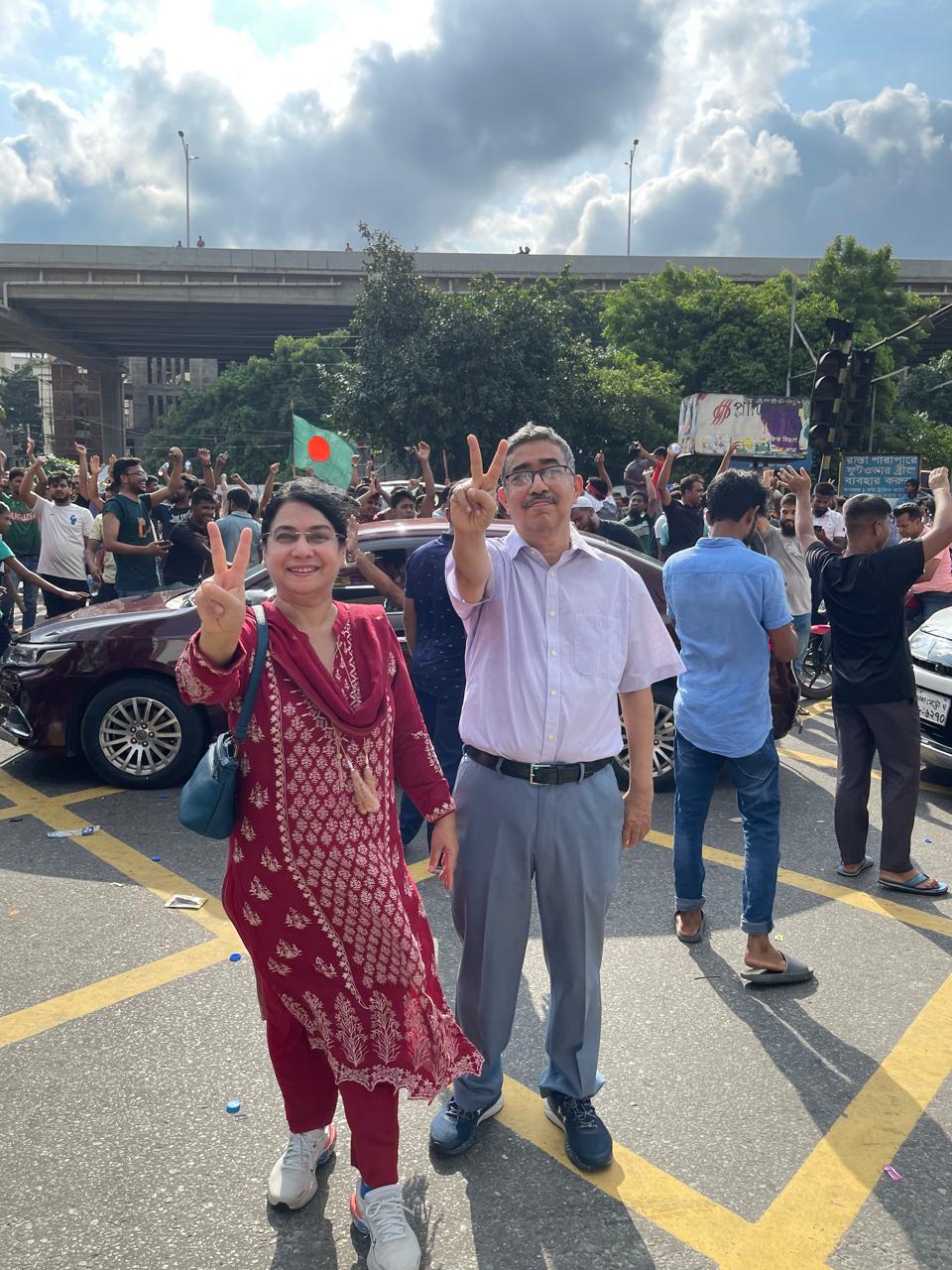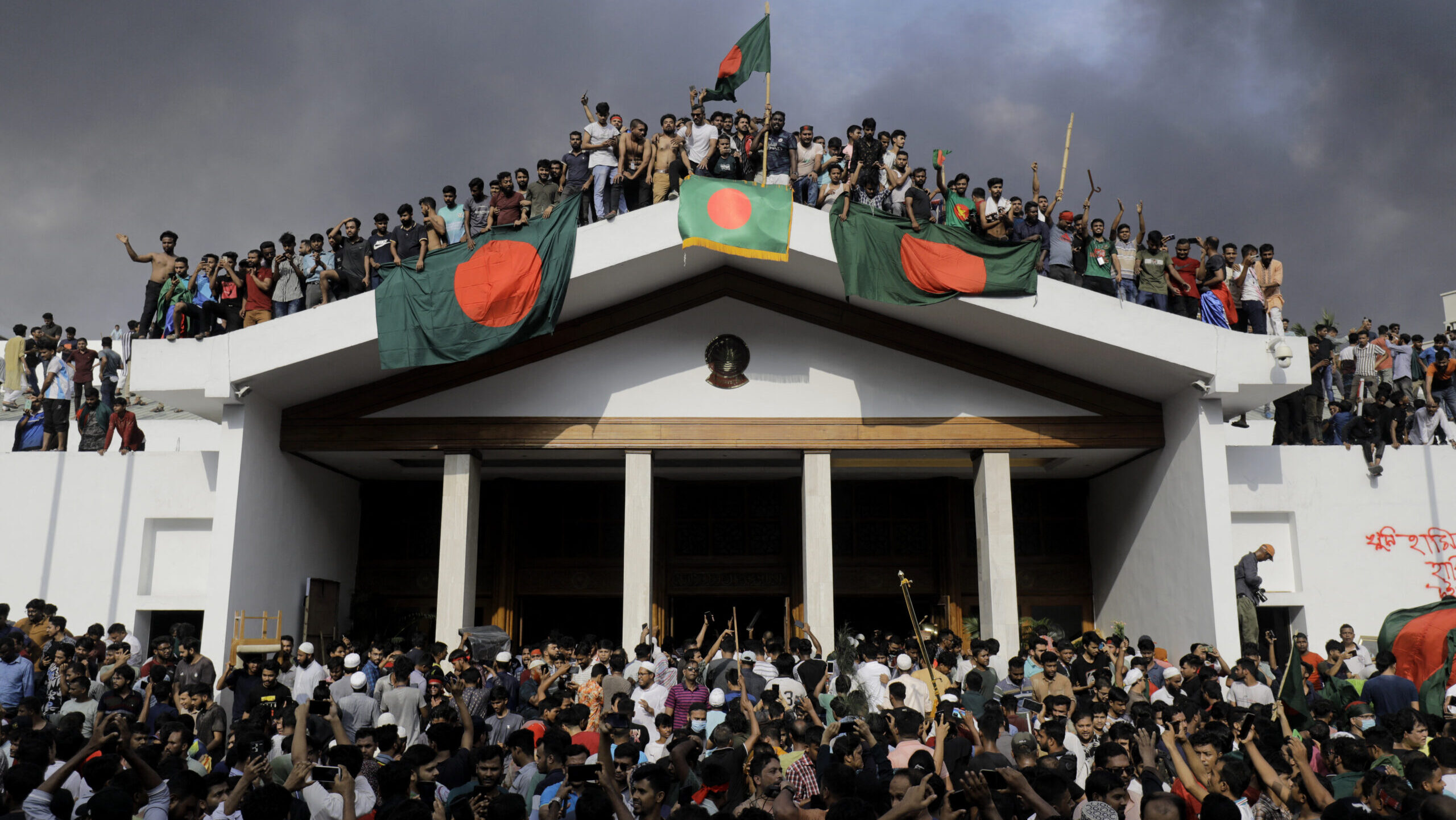Exclusive to TML: Choudhury Warns Against Return to ‘Authoritarianism’ in Bangladesh Shift
Bangladesh faces uncertainty as PM Sheikh Hasina flees amid protests, leaving a power vacuum and possible military interim government
Bangladesh’s Prime Minister Sheikh Hasina resigned and fled the country on Monday to go to India after several protests against a quota system for government jobs turned to be violent and put an end to her 15-year-old authoritarian rule.
Massive riots occurred in Dhaka on Sunday before her leave to demand her resignation and new elections. At least 94 people were killed, including 14 police officers, in a wave of violence across the country.
Hasina’s departure created a political vacuum in Bangladesh, opening options for different scenarios. The military chief, Gen. Waker-uz-Zamam, immediately said he was temporarily taking control of the country.
On the other hand, the country’s figurehead president, Mohammed Shahabuddin, announced a couple of hours after a meeting with Zamam that an interim government would be formed as soon as possible, leading to new elections.
This is a crucial moment for the future of Bangladesh since this interim government can either be formed entirely by the military, which would be bad and may create another form of authoritarianism, or several opposition members may take the lead and reestablish democratic elections.
“This is a crucial moment for the future of Bangladesh since this interim government can either be formed entirely by the military, which would be bad and may create another form of authoritarianism, or several opposition members may take the lead and reestablish democratic elections,” Inge Amundsen, political scientist and senior researcher at CMI, told The Media Line.
The protests started peacefully among the students one month ago, demanding the end of the quota system that granted access to government jobs, mostly to certain elites.
Thirty percent of jobs were, in fact, reserved for the children or grandchildren of the “freedom fighters,” those who fought during the Bangladeshi Liberation War in 1971—families connected to the PM’s Awami League Party.
This holiday season, give to:
Truth and understanding
The Media Line's intrepid correspondents are in Israel, Gaza, Lebanon, Syria and Pakistan providing first-person reporting.
They all said they cover it.
We see it.
We report with just one agenda: the truth.



BNP demonstration against PM Hasina. (Courtesy)
The debate among protestors highlighted the lack of quality jobs for college graduates, who increasingly opted out for the more stable and lucrative government jobs. But there wasn’t enough to go around—each year, some 400,000 graduates competed for around 3,000 jobs in the civil service exam.
Students were fed up with this system since they had merit and graduated from public universities but didn’t get any job for not being connected to Hasina’s party. At the same time, a new policy was passed, which allowed Indian workers to come here and get the highest-paid jobs.
“Students were fed up with this system since they had merit and graduated from public universities but didn’t get any job for not being connected to Hasina’s party. At the same time, a new policy passed, which allowed Indian workers to come here and get the highest-paid jobs,” Mahdin Choudhury, UK-trained Barrister and practicing lawyer in the Supreme Court of Bangladesh and member of the Human Rights Cell of the Bangladeshi Nationalist Party, explained to The Media Line.
Bangladesh has been facing huge economic challenges in the past years that caused high levels of unemployment, especially among youngsters, corruption, and a lack of human rights. On top of this, the quota system enlarged the gap between the country’s elites and people truly in need.
“Bangladesh has been facing huge economic challenges in the past years that caused high levels of unemployment, especially among youngsters, corruption, and a lack of human rights. On top of this, the quota system enlarged the gap between the country’s elites and people truly in need,” commented Dr. Fahmida Khatun, Executive Director of the Centre for Policy Dialogue, based in Bangladesh.
Over the years, Hasina had cultivated ties with powerful countries, including India and China. But, under her, relations with the United States and other Western nations have come under strain, as they have expressed concerns over human rights violations and press freedoms in the predominantly Muslim nation of 170 million people.
“We don’t know who will win these elections, but the results may definitely impact Bangladesh’s future foreign policy and diplomatic ties. This could translate into new solid relations between the country and the West, moving slightly away from the current one-sided ties with India and China,” said Amundsen.

Inge Amundsen, political scientist and senior researcher at CMI. (Courtesy)
“But Islam was not at the center of the political debate under Hasina due to her secular approach. And with a local society that has been gradually turning more conservative, the Bangladeshi Nationalist Party may win. This could translate into a more liberal Islam-oriented approach and will bring the country even closer to Muslim countries, especially to the Middle East,” he added.
“As a member of the biggest democratic party of Bangladesh, the BNP, I am hopeful that we could win the upcoming elections with a huge margin because people know how good we have been fighting for the rights of the people of Bangladesh, despite not having a seat in 2014 and this year’s elections. We will take a different lead from the previous “fascist regime,” which incarcerated many members of the opposition. Human rights, nationalism, and democracy shall be the core values,” explained Choudhury.
He added, “Our relationship with the neighboring superpower India shall improve if we win the elections, but we will also push for a foreign policy that could benefit our country and shall not serve anyone else’s own purposes as the previous government did.”
There is a likelihood that the BNP may win for sure since they are a big party and have been in power already in the past. If January 2024’s elections would have been fair and Hasina would have allowed them to participate, they could have won already.
“There is a likelihood that the BNP may win for sure since they are a big party and have been in power already in the past. If January 2024’s elections would have been fair and Hasina would have allowed them to participate, they could have won already,” highlighted Khatun.

Fahmida Khatun and her husband attending the riots in Bangladesh. (Courtesy)
Just a few hours ago, the students pushed for Nobel Prize winner Muhammad Yunus – a long-time political foe of Hasina- to lead the interim government since they refused an entirely military-led one.
“This is good news; since it opens the second scenario I was expecting to happen, we have to wait and see what happens next,” Amundsen concluded.
“Yunus is a good fit since he is respected by all parties and also abroad. He has been working nonstop for Bangladesh, especially by creating the Grameen Bank, which offers micro, long-term loans to help poor people start small businesses—a concept that has been taken off around the world as well. He has also been very critical of the past government, so it is a fresh start,” concluded Khatun.
Giorgia Valente is a recent graduate of Ca’ Foscari University of Venice and an intern in The Media Line’s Press and Policy Student Program.

